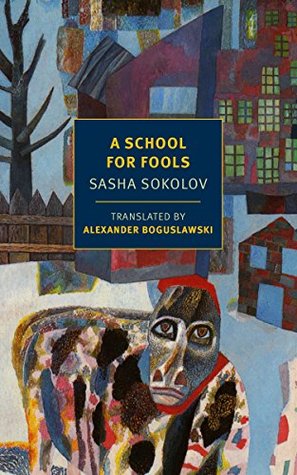Goodreads description
As I read this book I was reminded of a formative time in my life. I had left university only to become ill and as I waited for an operation I spent my time reading and watching films on television. One of the books I read was One Hundred Years of Solitude and so began my love of magic realism. One of the films I watched was Tarkovsky's film The Mirror. I was in the right state of mind for both book and film. I had time. I was willing to let go of expectations and experience these remarkable works of art. The experience was almost a mystical one.
A School for Fools reminds me of Tarkovsky's film. Maybe this is partly because of its non-linear structure, the poetry, the disorientation, the slowness even, the focus on a young man growing up. It also reminds me of these things because you have to be in the right state of mind. I am not sure I was/am in the right "zone" to really appreciate the book. Perhaps the pressure of having to read and review a book a week for this blog played against me. The book is complex and full of symbols and not by any means an easy read. Nevertheless I was able to appreciate much of what it had to offer, if not fully enjoy it.
At the centre of the novel is the narrator, or should I say two narrators, because the book's central character is a young man with schizophrenia and two distinct personalities, Pavel and Savl (Paul and Saul of the Bible), and the narration flicks between them in a sort of internal or possibly external dialogue. But the duality of the book doesn't stop there as we see the world through Pavel's eyes and find that other characters have two personifications.
Pavel also has a problem with linear time and the narrative jumps backwards and forewards without warning. Pavel can be at once a schoolboy at a special school (the school for fools of the title) and a successful engineer wooing a woman. I took that to mean he is at once the schoolboy and what he should have been. This is psychological magic realism of the first order.
Other elements of magic realism include the butterflies Pavel collects, which appear in the winter as well as in the summer. The schoolteacher and the boy's idol, the inhabitant of a dacha on the other side of the river, is able to be both alive and dead. The river is identified by Pavel as the river Lethe.
With so many magic realism books to read I seldom allow myself the luxury of saying that I intend to read a book again, but I do want to return to this book. I will do so when the time is right and my mind is able to fully grasp the book's brilliance.
I received a copy of this book free from the publisher in return for a fair review.

No comments:
Post a Comment